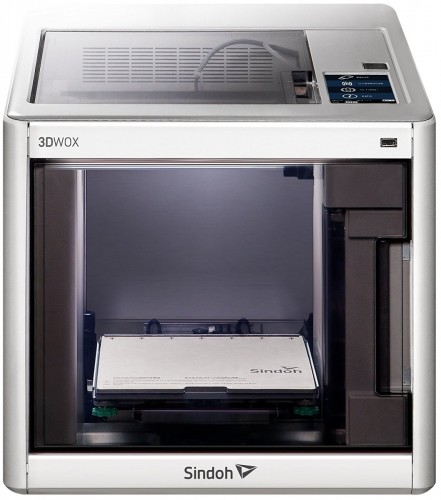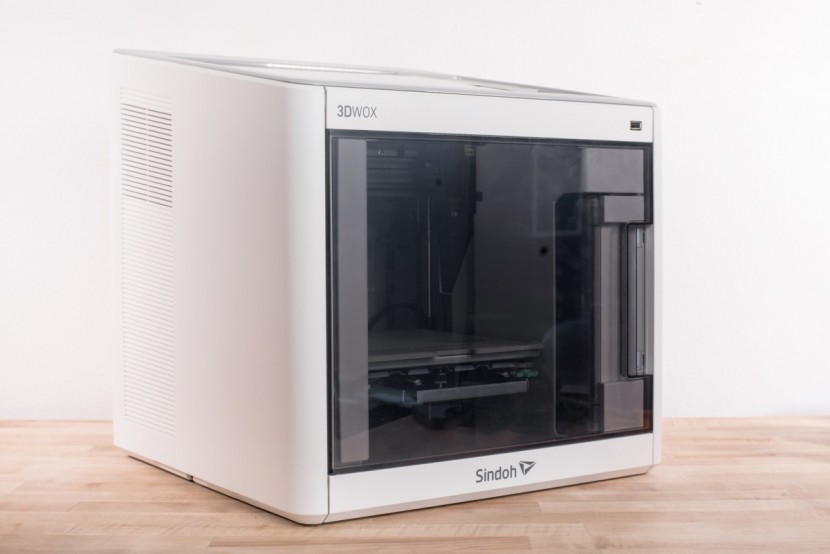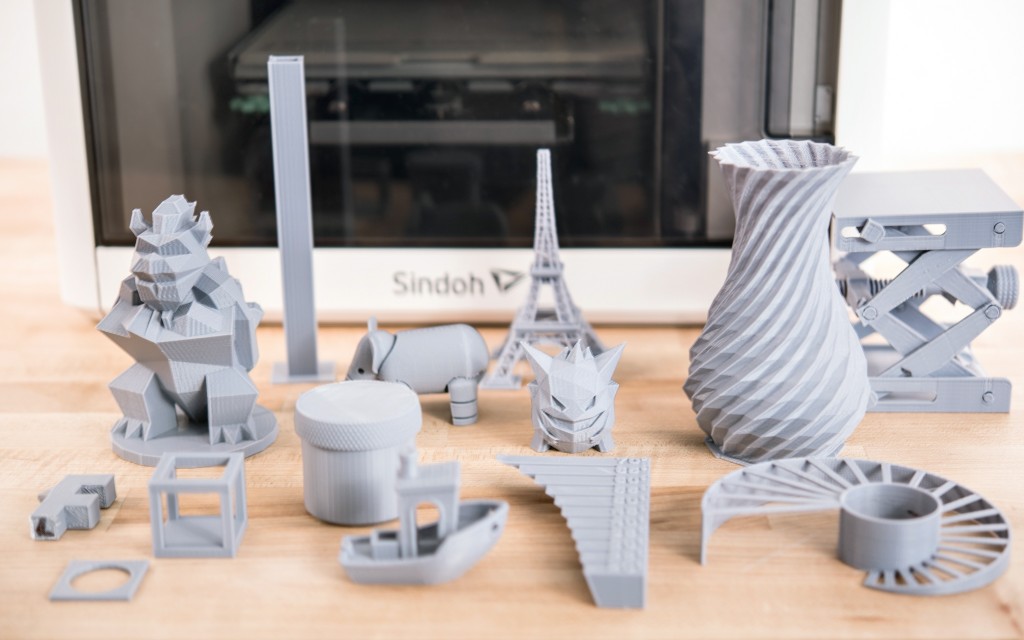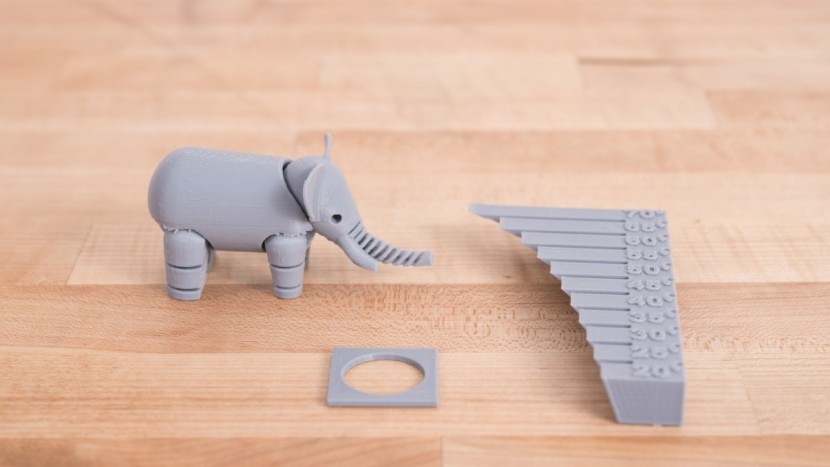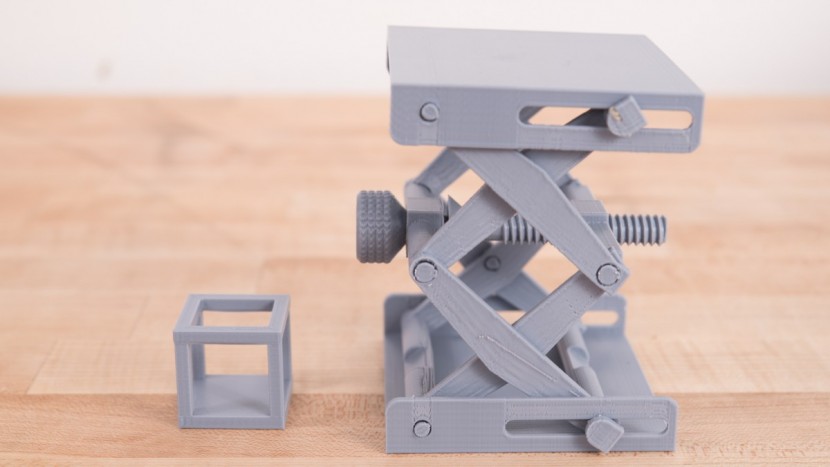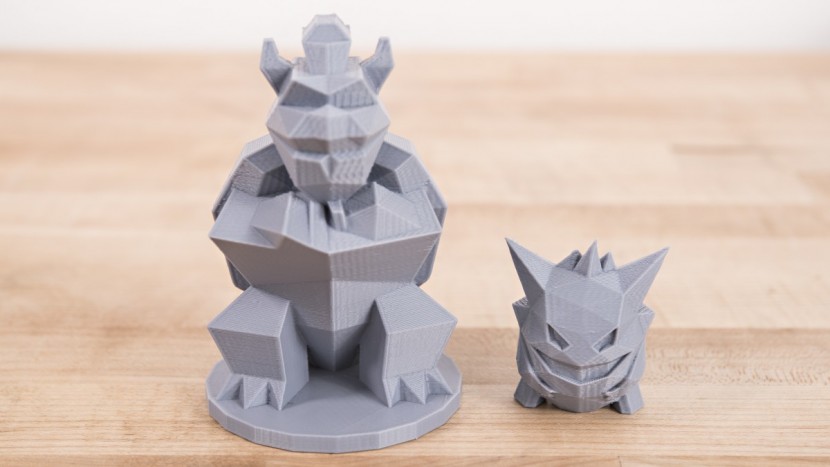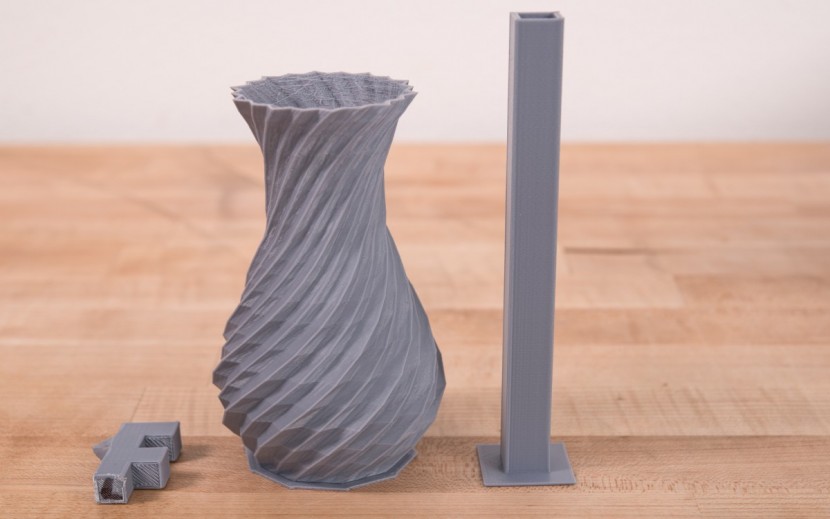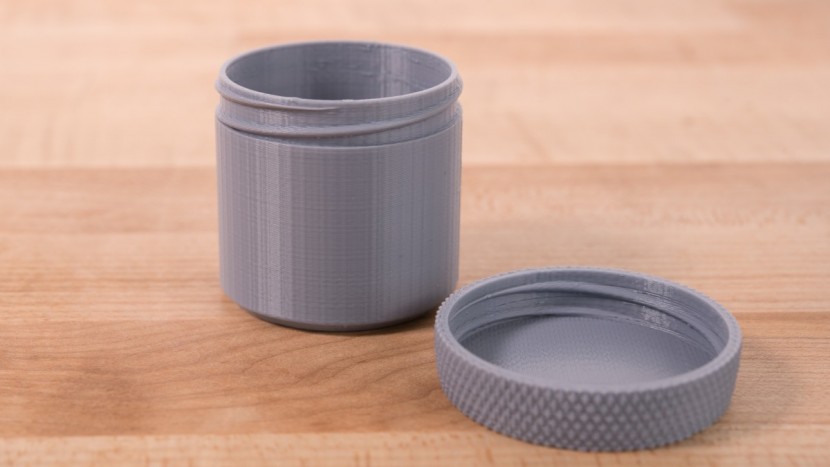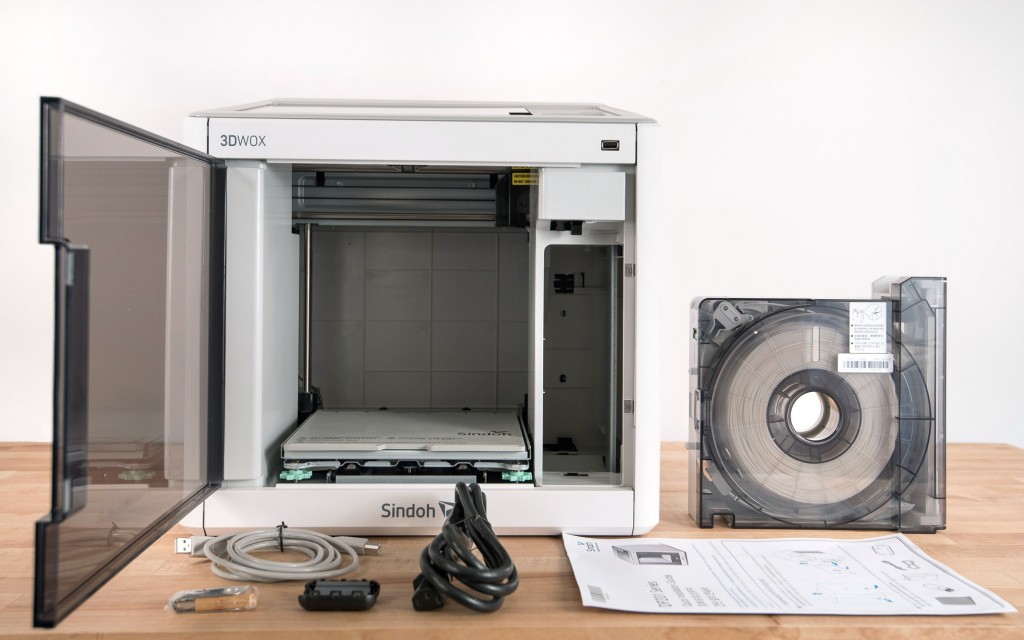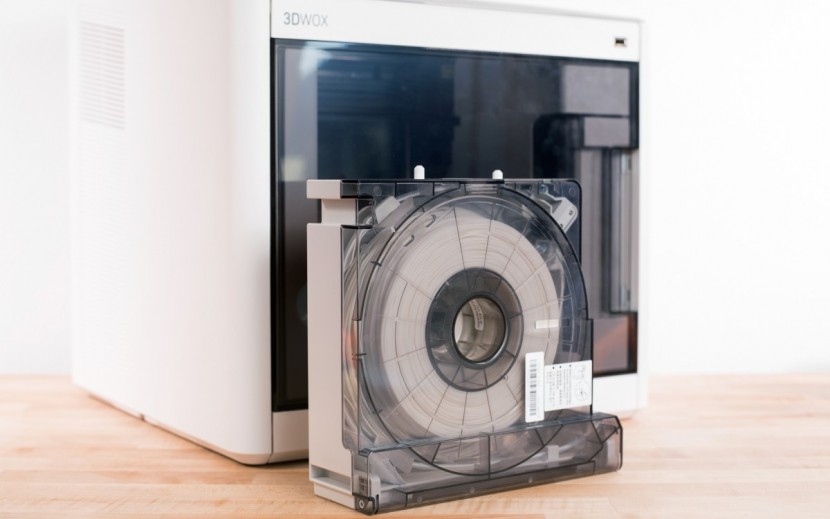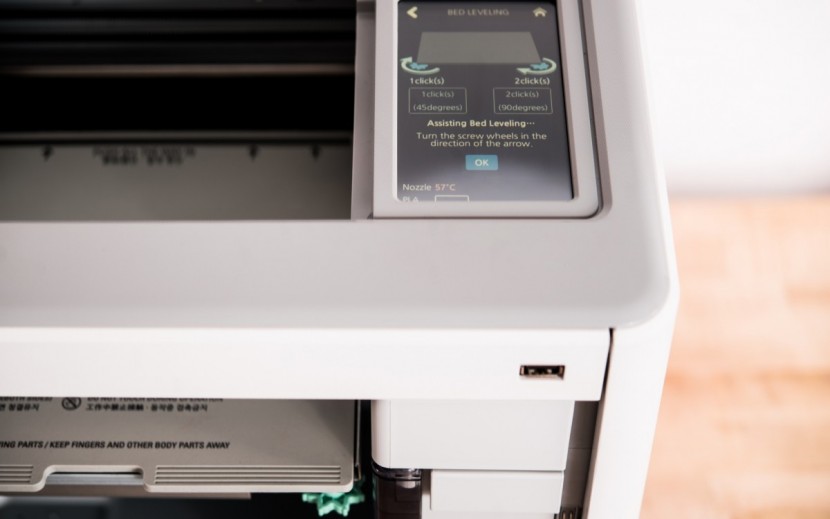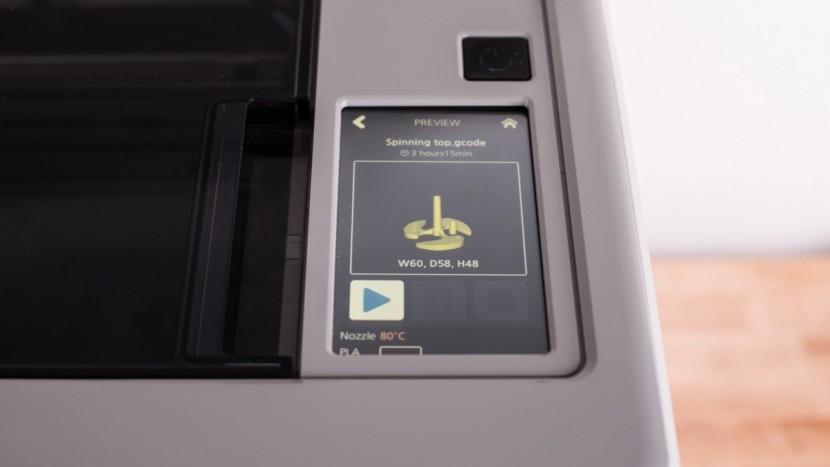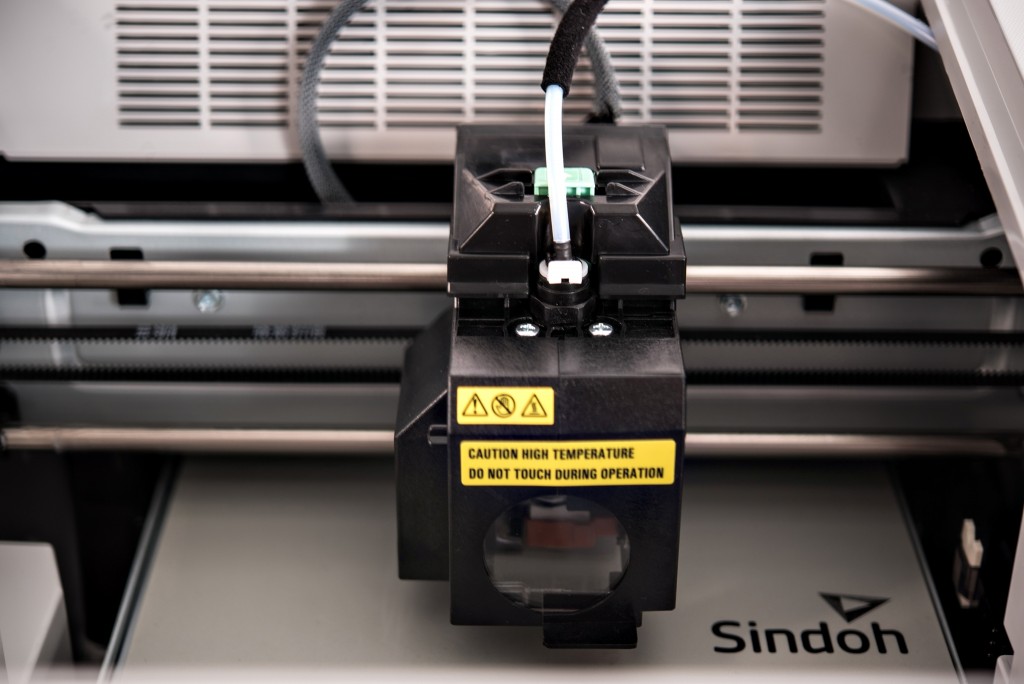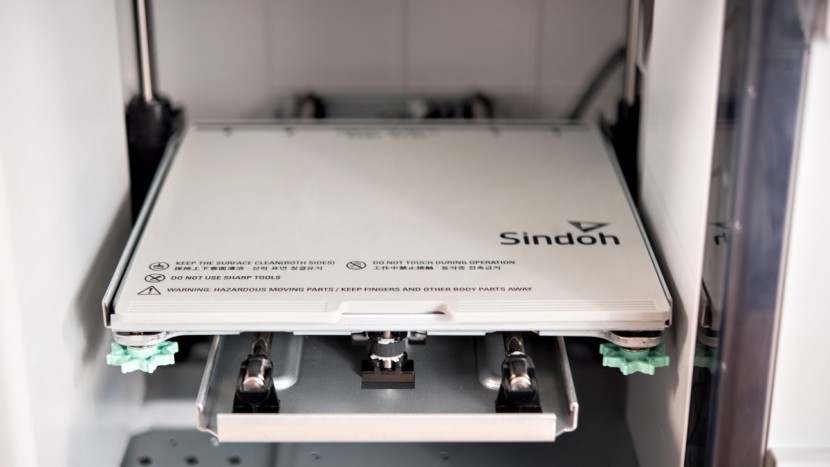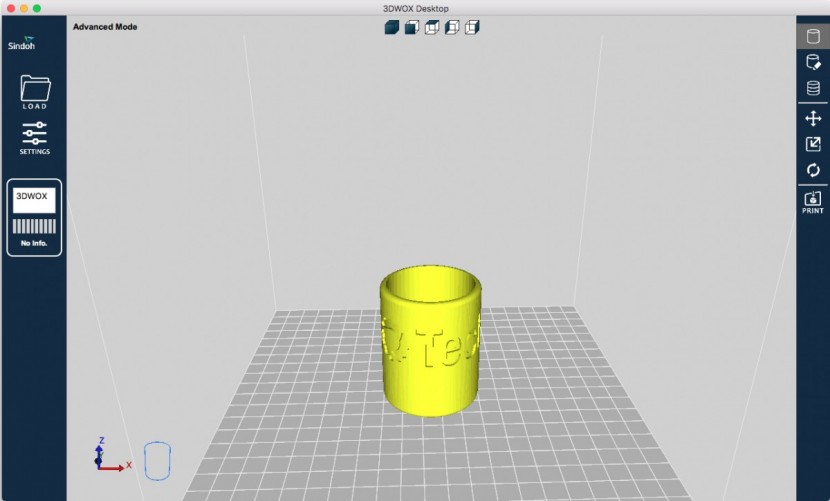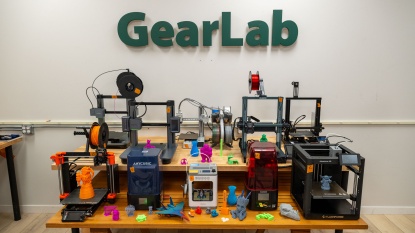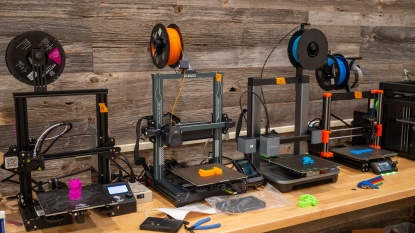Sindoh 3DWOX DP201 Review
Our Verdict
Our Analysis and Test Results
The Sindoh 3DWOX DP201 is a great pick for someone that wants all of the easy to use and convenience features of a premium printer without paying a premium price. This is a great pick for someone who needs things 3D printed but doesn't necessarily view 3D printing as a hobby, more of a means to an end. This model makes high-quality prints right out of the box with practically no setup. This printer would also be a great choice for schools or libraries, with the enclosed body keeping wandering hands out of the printer and the integrated web camera for remote monitoring.
Print Quality
The most important metric in our test was Print Quality, based on the performance of each printer on our set of sample prints. This metric comprised almost half of the entire score, measuring in at 40%, with the Sindoh delivering an above average performance, earning it a 6 out of 10, putting it in the upper half of the printers that we tested.
Our rating panel, composed of both experts and novices, compared the quality of each print produced against the rest of the group, without knowing the printer of origin. The scores were then aggregated to determine each printer's final score for this set of tests.
The Sindoh only prints in PLA plastic, meaning we only had one version of each sample print to evaluate. This model did a slightly subpar job in our first test, the 3D Benchy tugboat torture test. The DP201's Benchy was below average, with some misprinting in the windows and some imperfections noticeable at the base of the smokestack.
This model did much better with the bridging test but failed on the Eiffel Tower print. The bridging model did amazing, with a minuscule amount of sagging and only a few strings due to insufficient retraction. The Eiffel Tower broke in half when we tried to remove it from the print bed and had a raft fused to the base.
The performance in the next group of prints wasn't terribly impressive but the Sindoh did excel in the overhang test. The articulated elephant had some artifacts at the top of the ears and the underside had a poor surface finish. However, the legs did move relatively freely. The nickel test turned out slightly oversized for the nickel but otherwise was great. As mentioned above, this model did an excellent job on the overhang test, though the planes weren't quite as clean on the sharpest overhangs as the FlashForge.
This model created a close to perfect hollow cube, with only the smallest bit of sagging. However, the platform jack created by the Sindoh wasn't the best, with some Z-axis wobble and a Z-axis shift partway through printing. The bridges were sub-par but the platform jack opened and closed smoothly, even with all the issues.
Boosting its score, the DP201 did well with our pair of low-poly figurines from some popular video game franchises. The larger print did very well, with only some slight issues with the smallest points. The smaller print had some poor quality overhangs and had an overall rougher finish.
The tall tower test came out exceptionally well, though the corners were slightly rounded. However, there was no perceptible Z-axis wobble — the main point of this test. The support test was about average, requiring more cleanup and tools to remove the support structure than other models. The spiral vase was plagued with strings and retraction issues and we couldn't adjust the settings to get a single layer wall thickness, even after consulting with the manufacturer.
The DP201 delivered a very strong showing in the final two tests: a threaded jar and lid.
The threads were very smooth — allowing the lid and jar to fit together without resistance. However, there was a noticeable seam from the stop/start points.
Ease of Use
Ease of Use received the second highest weighting in our review, accounting for 30% of the final score, based on comparing the ease at leveling the bed, initial assembly, swapping filaments, and sending files to the printer from a computer. This metric is where the Sindoh DP201 truly shined, earning a 9 out of 10 — one of the best scores that we have seen!
This model had zero setup and assembly and was ready to go right out of the box. The Sindoh uses a cartridge based filament system that means it will automatically do all of the work to swap filaments for you. You simply need to navigate to the correct menu on the printer and select load or unload. It will then preheat the extruder and retract or advance the filament.
Bed leveling is a semi-automatic process, with the printer probing and then prompting you to adjust certain knobs by a certain number of clicks to perfectly level it.
This model also had the widest array of connection methods available, allowing you to print directly from a computer via USB cable or Ethernet cable, from a flash drive for standalone printing, or relatively reliably from a network connection.
This model also had one of the nicest and most informative displays while printing.
Print Capabilities
Earning the third highest weighting, Print Capabilities is responsible for 20% of the final score. The Sindoh's performance dropped slightly, with this model earning a 5 out of 10 for its overall average set of capabilities.
We compared the ability to upgrade or swap slicing software, the build volume and build plate, filament compatibilities, and extruder capabilities to score this metric. The build volume on this model is decently large, measuring in at 210 x 200 x 189mm. The build surface is some type of flexible rubber and removable, making it very easy to remove prints. However, we had a few bed adhesion issues on the largest prints.
This model is only compatible with Sindoh-specific filament, with the printer checking a computer chip on the cartridge to view filament remaining. While this does limit the types of filament you can use, it does make things like automatic filament changes and a warning when you have an insufficient amount of filament to complete a print possible.
This model uses a proprietary slicer as the recommended software but is compatible with other programs like Cura or Simplify3D.
As mentioned above, this model is restricted to PLA only, making the extruder temperature range somewhat irrelevant.
This is because you could not make use of higher temperature filaments even if the extruder is capable of reaching the requisite temperatures. However, it does have a single layer cooling fan to improve the quality of PLA prints.
Support
The last metric in our test — making up the residual 10% of the score — rated the manufacturers of each machine rather than the machine itself. We compared the helpfulness of the response to our questions to customer support, the quickness of the response, included warranty, and the documentation on the website of the manufacturer. The DP201 finished with a reasonable score, earning a 6 out of 10.
The Sindoh includes a year or 3000m filament warranty but the inner parts, such as the nozzle or bed are only covered for 90 days. You can check the full terms of service on the Sindoh website here.. Their response to our question regarding the settings for a spiral vase were helpful but didn't really help us solve the issue, with the walls of the vase still turning out unacceptably thick. In addition, the contact form wasn't the most intuitive to use and there was no USA phone number listed, but there were about 10 instructional videos that walked you through the use of the printer on their site.
Value
While this printer is a little pricey compared to some of the more economical options, it is a great value for the convenience it offers.
Conclusion
While there are cheaper options out there, they are much much harder to use and have a steeper learning curve in getting quality prints. The Sindoh just works from the get go and is a fantastic option for someone that just wants a reliable 3d printer that works without fuss and produces good prints.


